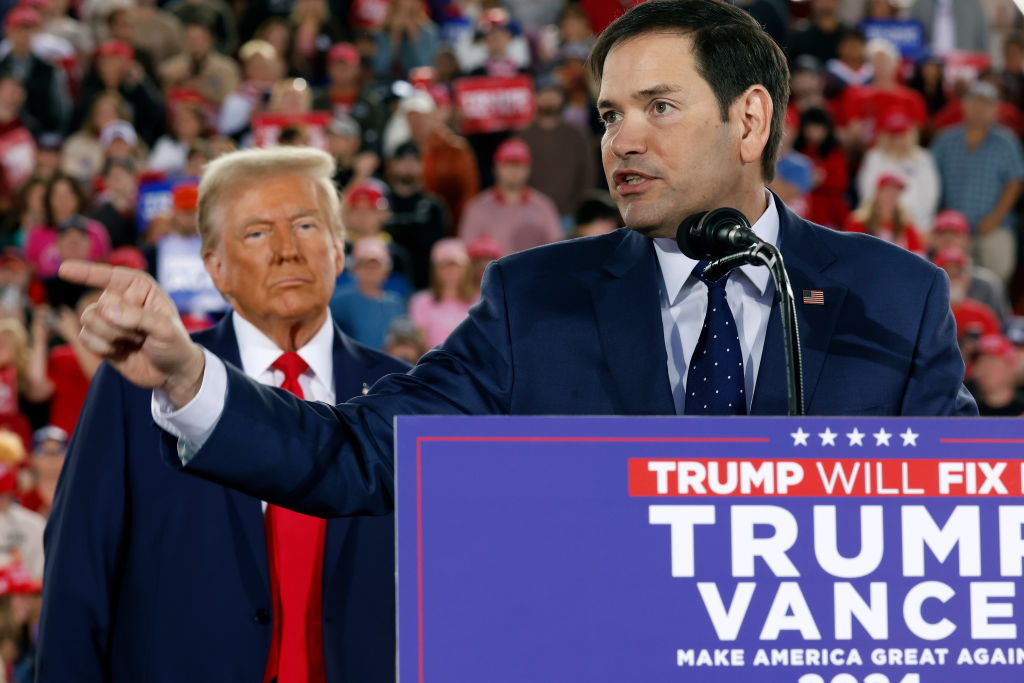There’s a new sheriff in town. Trump’s election means a new Secretary of State; the world’s most powerful foreign minister is now a Republican. Out goes Anthony Blinken, Joe Biden’s longtime Francophone aide. In comes Marco Rubio, the three-time Florida Senator. Unlike some of Trump’s cabinet picks – like the unorthodox Pete Hegseth at Defence – Rubio sailed through his Senate confirmation, winning the unanimous approval of his former colleagues. This is partly because the ideological switch from Blinken to Rubio is less dramatic than in other cabinet posts.
Both men are staunch supporters of Nato; both received a big thumbs up from national security establishments across the West. Europe is important to the worldview of both men. Blinken was a staunch supporter of Ukraine from the beginning of the war to his last day in office. Rubio, a traditional Atlanticist, has had to adapt his views to the changing mood of the Republican party, but still favours ‘a strong, engaged US posture in the world,’ according to one ex-aide. One area, though, where Rubio looks willing to outflank Blinken is on China.
The new Secretary of State is a longtime critic of Beijing, who sanctioned him back in August 2020 for what it called ‘egregious behaviour’ related to ‘Hong Kong-related issues.’ A fortnight ago, he described China as ‘the most potent and dangerous near-peer adversary this nation has ever faced’. It is this issue of US-China relations which could cause major headaches for David Lammy and the Foreign Office here in London. The most immediate example of that is the deal, announced back in October, for the UK to hand over the Chagos Islands to Mauritius – the first African country to sign a free trade deal with China.
Rubio is a vocal critic of these plans. Prior to his nomination, he warned the deal ‘poses a serious threat to our national security interests in the Indian Ocean and threatens critical US military posture in the region.’ He added that it ‘would provide an opportunity for communist China to gain valuable intelligence on our naval support facility in Mauritius’. Since his nomination, he has been restricted from commenting publicly on the deal’s developments. But this morning, the Telegraph and others have reported that the issue was raised in the first call between Rubio and Lammy.
The subject did not appear in the official ‘read-out’ published by London and Washington. But it is worth comparing the two versions of the conversation side-by-side. The American read-out refers to both China’s ‘malign influence’ and Aukus; the British account mentions neither. This seems something of a missed opportunity. In recent years, the UK has a strong track record on the Indo-Pacific including Aukus and a series of pacts with Japan on defence, trade and intellectual property. Given this region is clearly going to be central to Rubio’s efforts in office, Lammy and the FCDO ought to trumpet British successes here – even if many in Labour would prefer to focus on Europe.
On Chagos and in other areas, Washington is likely to take a Sinosceptic position. Britain will need to work with the grain of American thinking, rather than against it. Initiatives like Rachel Reeves’ Beijing trip – a jaunt that won the UK a pitiful of £600 million of investment – risk giving the Americans the impression that Britain is not serious on China. Explaining its thinking, both publicly and privately, is going to be one of the major challenges for this government.
David Lammy likes to talk about progressive realism. The danger for Britain is that when it comes to America and Marco Rubio, we now have a progressive negotiating with a realist.







Comments